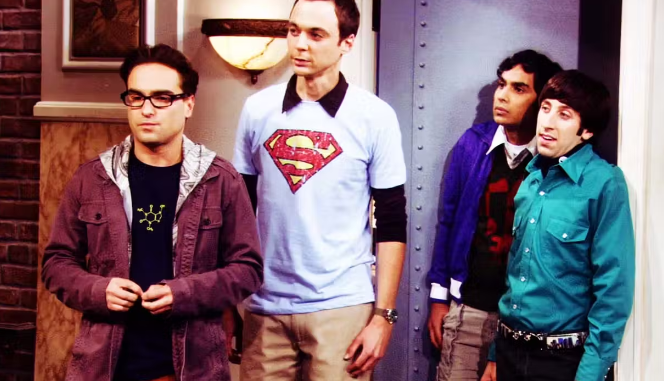
“Palm Royale” showrunner Abe Sylvia relied on his “guru” Joni Mitchell (via her song “People’s Parties”) when figuring out the tone for his Apple TV+ comedy: “Laughing and crying are the same release.”
“Our show took itself really seriously even as it went absurd,” Sylvia said. “It’s a gay ‘Fantasia,’ right? It’s tone is maximalist gay. This was a drag show on a $12 million episode budget.”
Sylvia joined “Hacks” co-creator Jen Statsky, “Krapopolis” creator Dan Harmon, “Young Sheldon” exec producer Steve Holland, “What We Do in the Shadows” writer Jake Bender, “Diarra From Detroit” creator/star Diarra Kilpatrick and “Loot” co-creator Alan Yang on a panel exploring comedy writing on Thursday night during Variety‘s A Night in the Writers’ Room. Variety TV editor Michael Schneider led the discussion.
In the writers’ room for “What We Do in the Shadows,” Bender said he and his colleagues think of the show as a normal sitcom about roommates, inspired by shows like “Frasier” and other classics.
“It’s incredibly liberating to write characters who have no idea what year it is or who the president is,” Bender said. “I think it makes writing just a lot of fun.”
“Loot,” which stars Maya Rudolph as a wealthy divorcée trying to figure out what to do with her $87 billion settlement, is “99% dumb jokes about stupid people, but 1% about the housing crisis in L.A.” according to Yang.
Yang says he and co-creator Matt Hubbard wanted to raise the conversation surrounding the housing crisis, but looked to experts for ideas of what they would do with unlimited funds to aid people who are houseless.
“‘Loot’ was a very conscious decision from me and Matt Hubbard to kind of bring some joy into the world,” Yang said. “It’s a traditionally structured workplace comedy in a time when we had gone through COVID, we were going through the strike and we were like, ‘Let’s make a fun, funny show with great comedic actors and have a little bit of a message behind it as well.’ That was kind of a conscious decision to go back to classicism.”
Kilpatrick said she found the balance between drama and comedy for “Diarra in Detroit” from her own upbringing, citing her parents as a source of inspiration for tone. She said the balance is intuitive, as she draws from her dad’s goofy personality and her mom’s more serious tone within her.
“I like to start with the drama to be honest,” Kilpatrick said. “And then because I’ve grown up around so many damn fools, I just have the humor just kind of works its way in. For me, it’s never too soon to make a joke. It’s never inappropriate to make a joke…I would say that it’s mostly a drama about people who are inherently funny.”
Harmon, who created “Community,” said he thinks it’s great progress that comedy writers have escaped the constant set-up, punchline machine.
“Now what you have is people are going like, ‘Hey, I’m funny. This is a funny situation,’” Harmon said. “And if you can’t expect the next line to be either a set-up or a punchline, you can work towards a bigger laugh.”